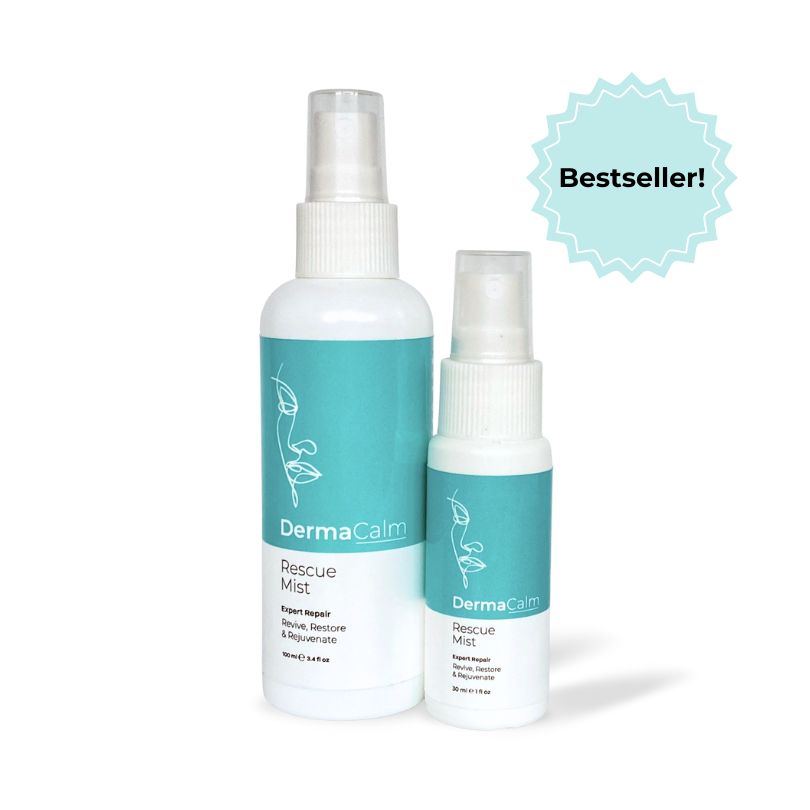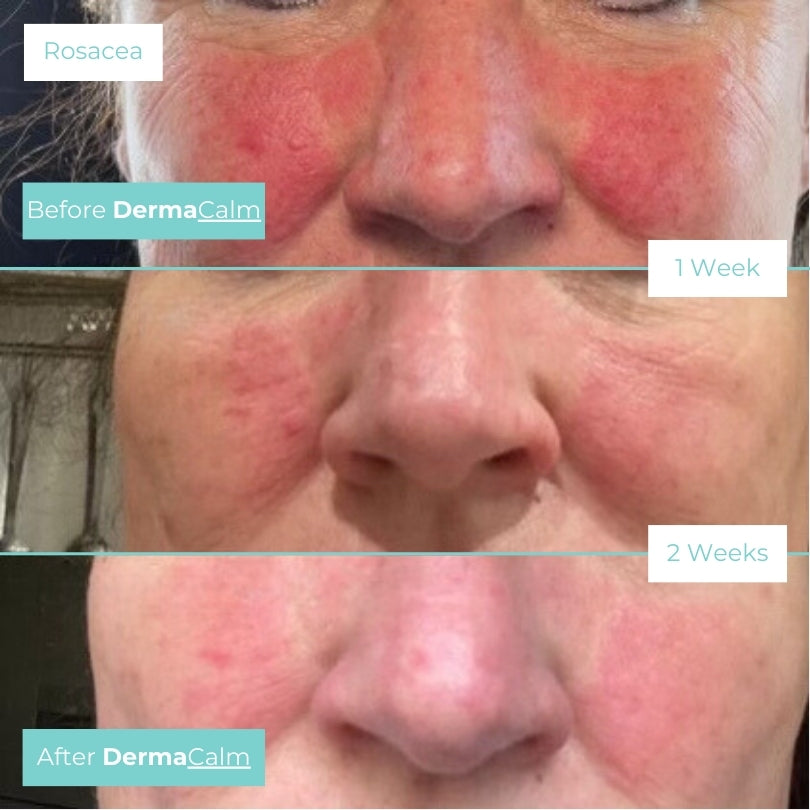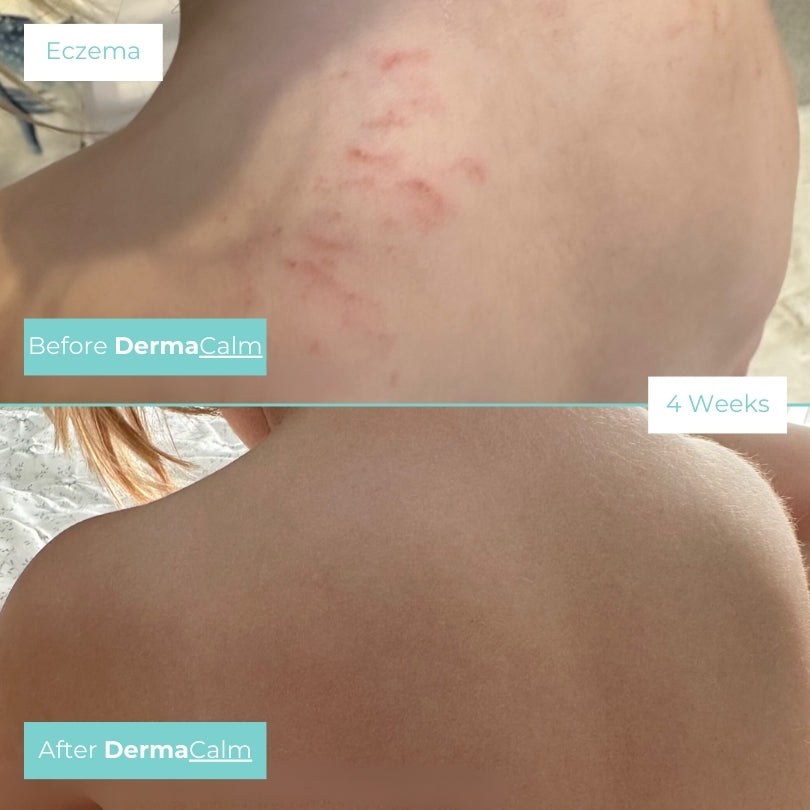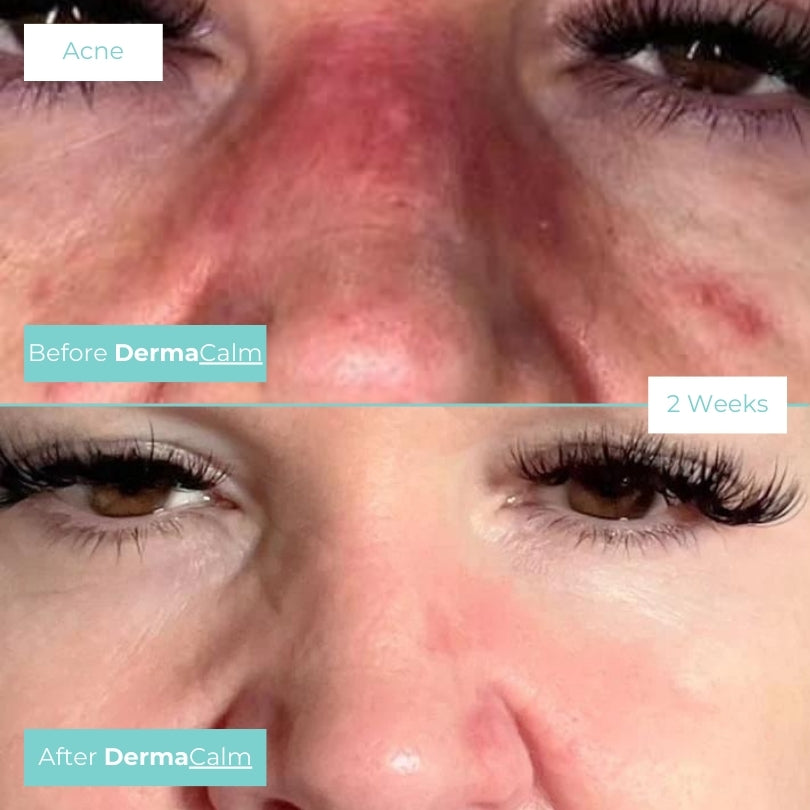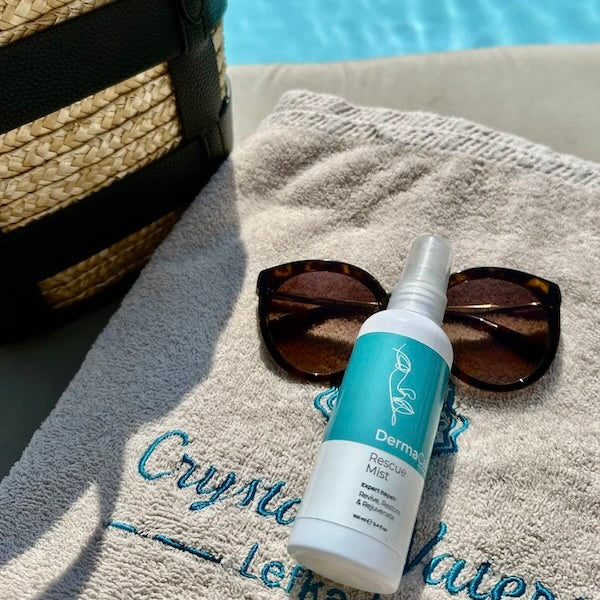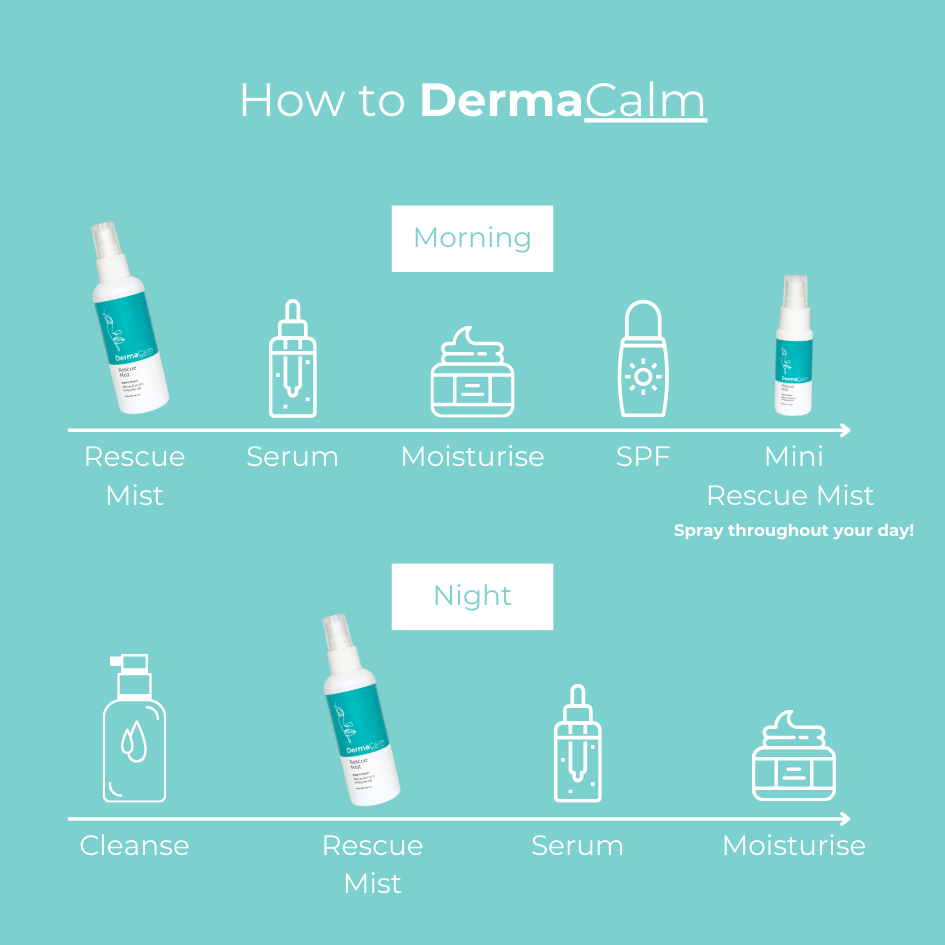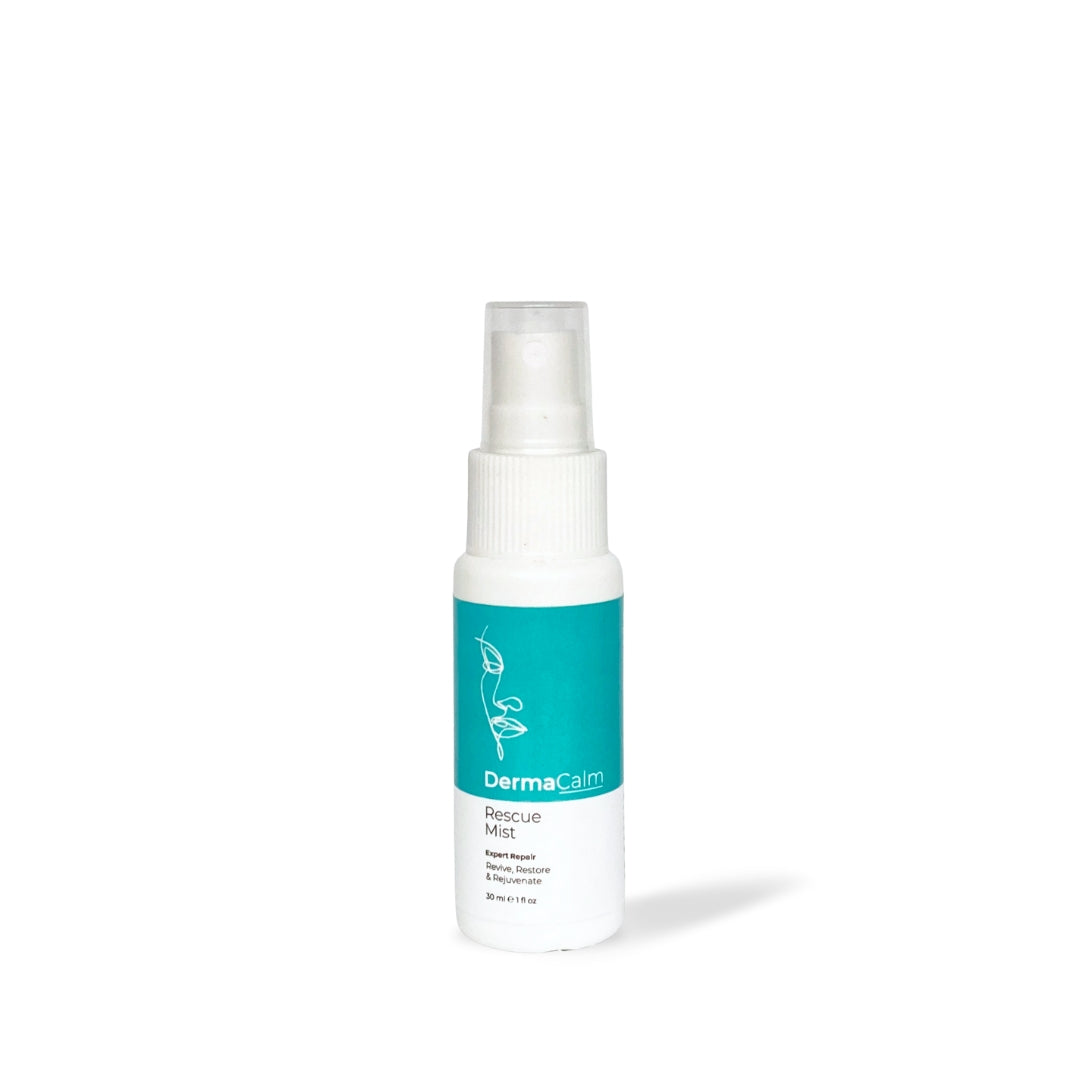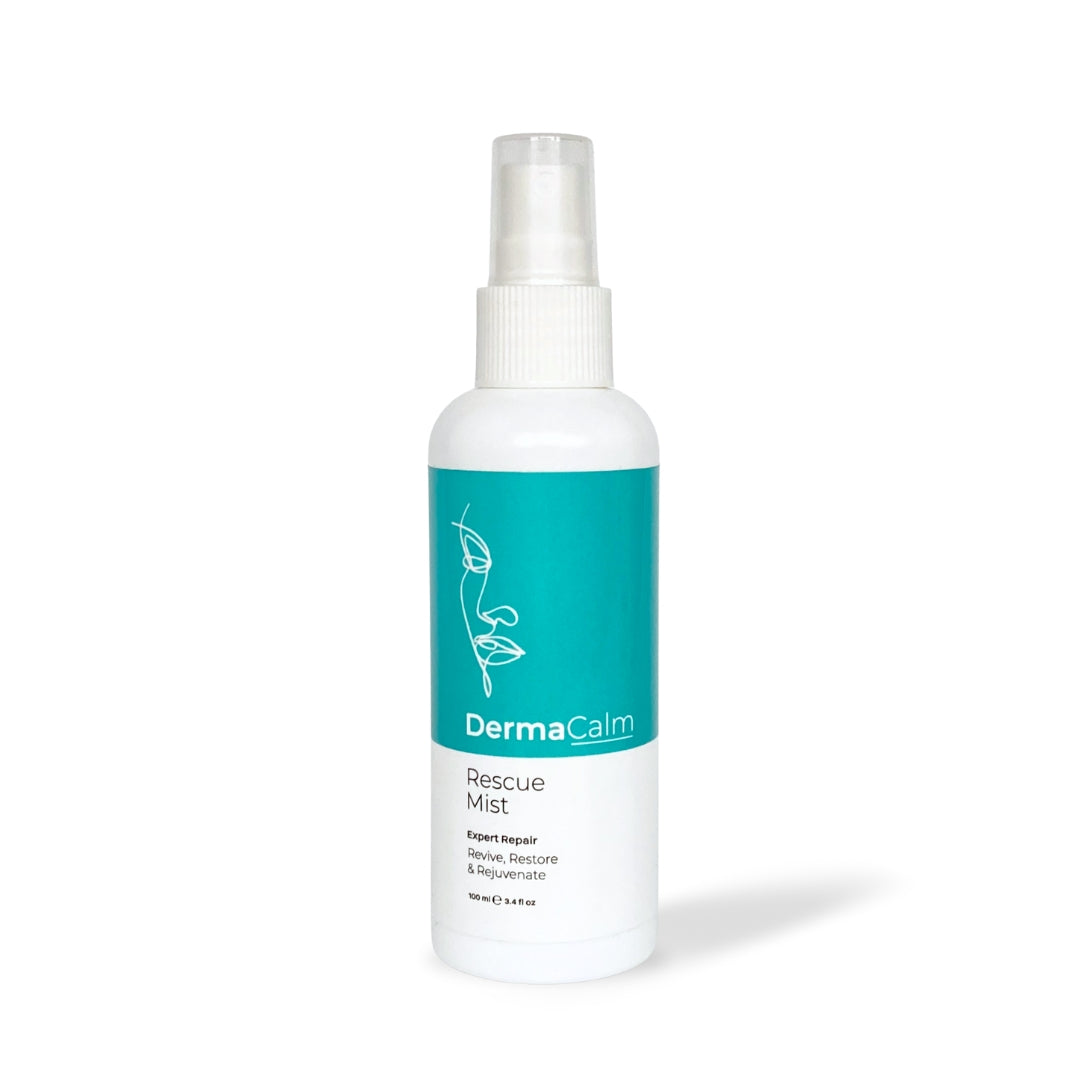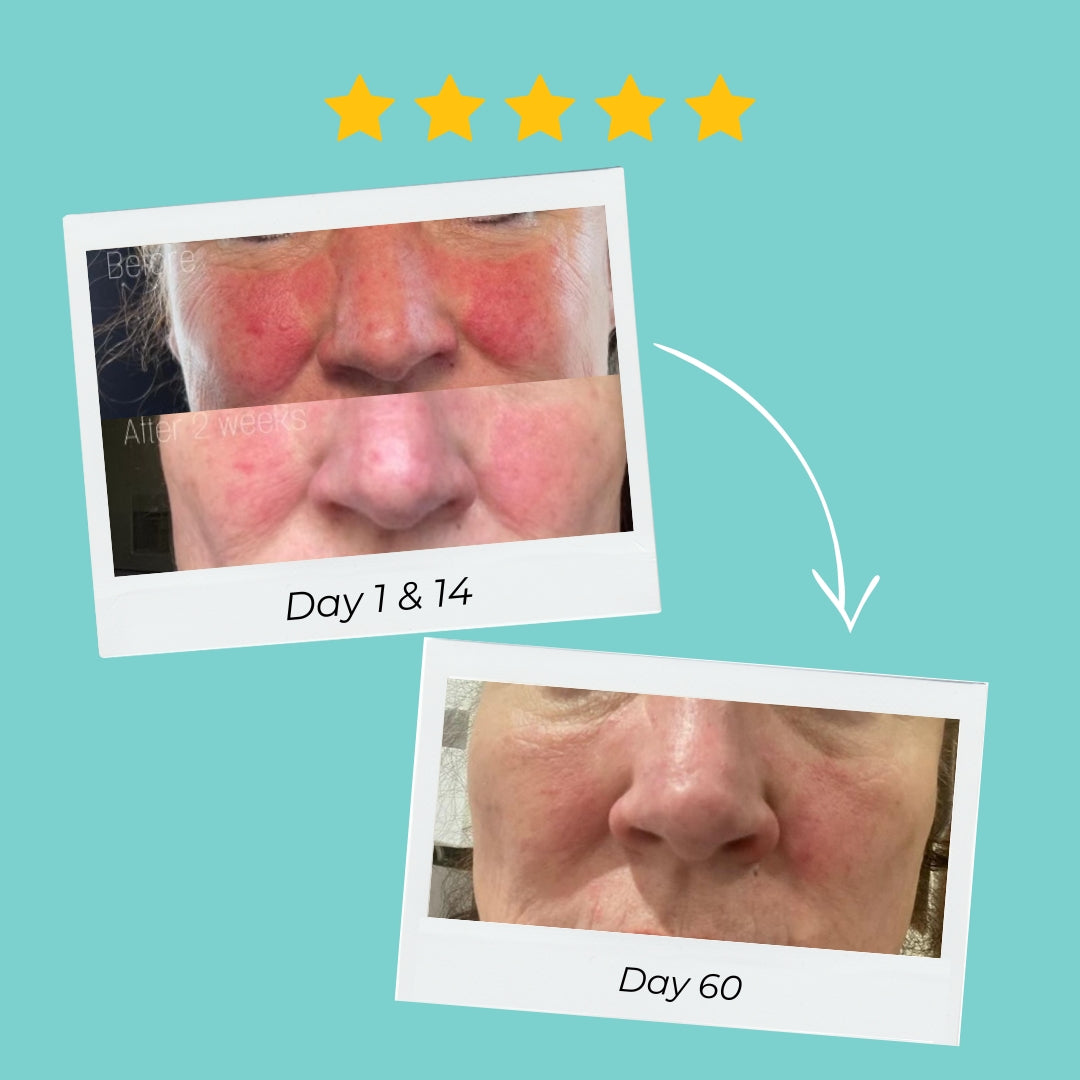
Backed by Evidence.
Dial down redness from rosacea, psoriasis, eczema, and acne to reveal your radiant skin.
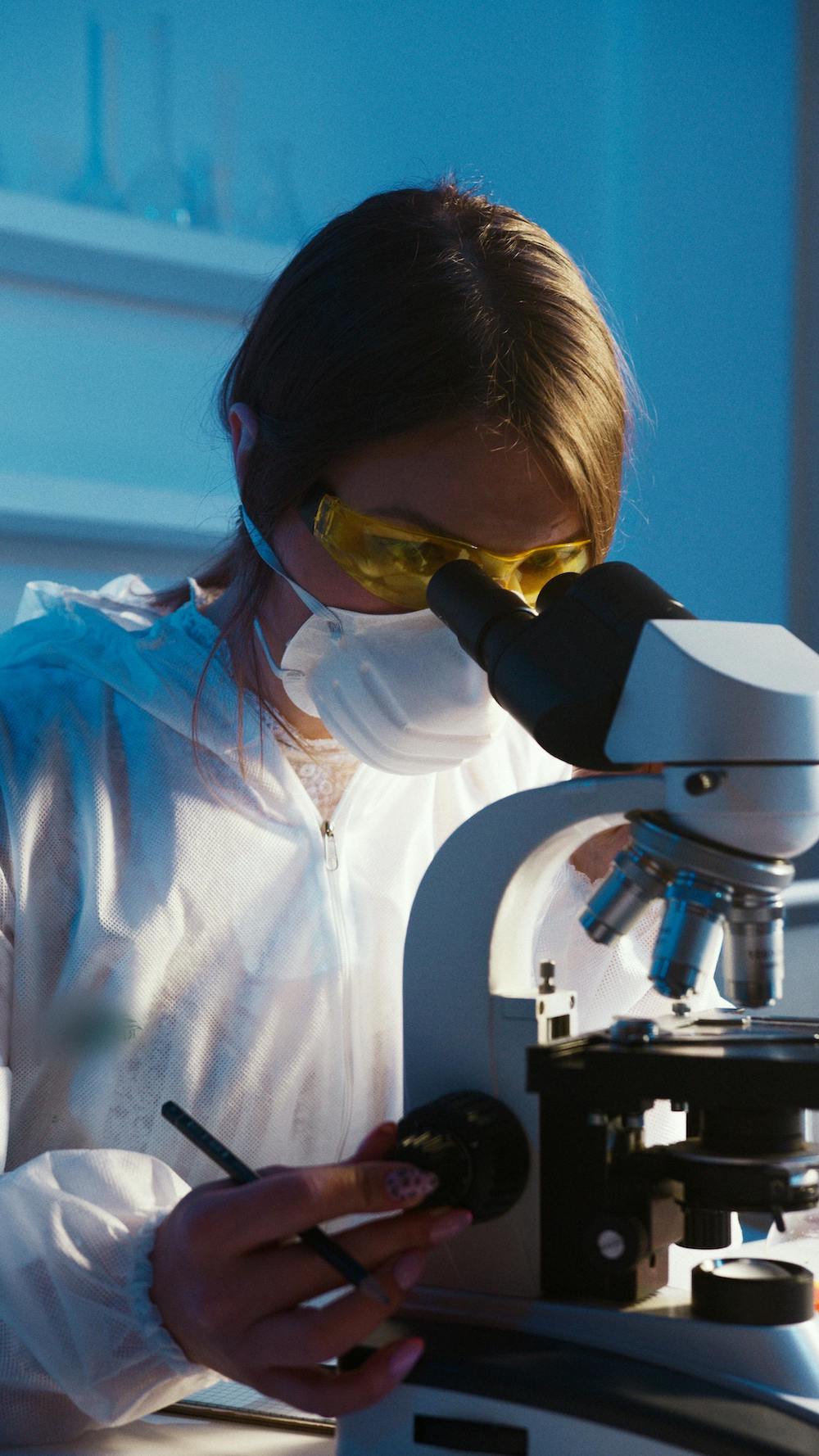
Shedding a New Light on Skin Aging, Iron- and Redox-Homeostasis and Emerging Natural Antioxidants
Hypochlorous acid (HOCl) benefits the skin by managing reactive oxygen species (ROS) and oxidative stress, which can accelerate skin ageing. Key points include:
- Antimicrobial Defence: HOCl helps the skin fight off infections by acting as an antimicrobial agent.
- Oxidative Stress Management: It neutralises excess ROS, reducing oxidative damage to skin cells caused by factors like sunlight.
- Redox Balance: HOCl helps maintain a healthy cellular redox balance, which is crucial for skin ageing.
- Iron Regulation: It may regulate labile iron levels, which can otherwise contribute to skin damage and ageing.
- Anti-Ageing and protection: Combining HOCl with natural antioxidants and iron-chelating properties in skincare products enhances anti-ageing and photoprotective effects, promoting healthier skin.
For more detailed insights, you can access the full study on NCBI.
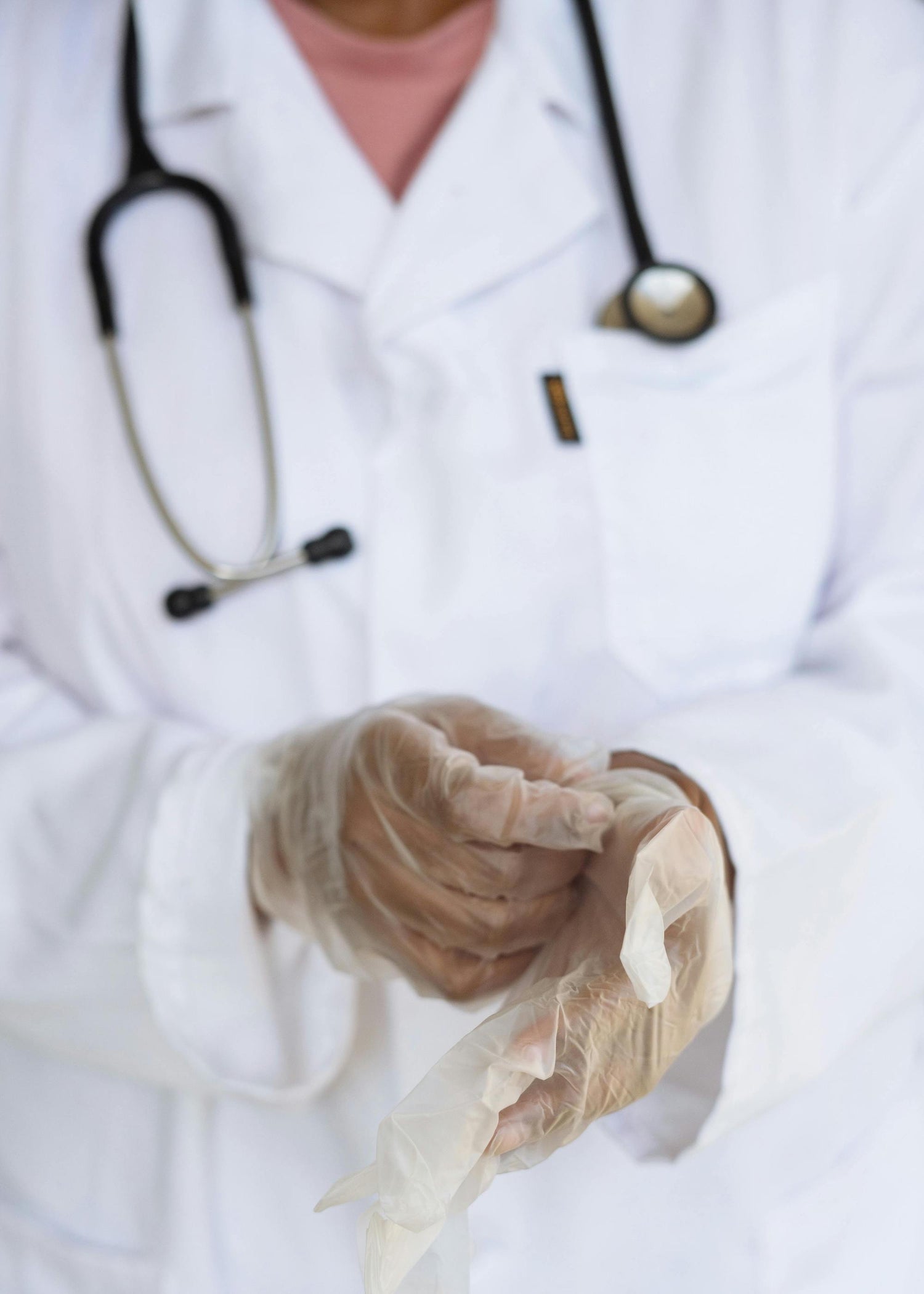
Topical stabilized hypochlorous acid: The future gold standard for wound care and scar management in dermatologic and plastic surgery procedures
The paper highlights the benefits of using topical stabilised hypochlorous acid (HOCl) for wound and scar management, especially around medical procedures. HOCl, naturally produced by the immune system, is highly effective against microorganisms and biofilms, promoting wound healing. Stabilised HOCl can be used as a topical antiseptic agent. Key points include:
- Wound Healing Environment: It creates an optimal healing environment and can reduce scarring and itching.
- Safety: HOCl is safer than chlorhexidine, as it doesn't cause eye or ear toxicity.
- Microbicidal and Antibiofilm Properties: It has strong antimicrobial and antibiofilm effects, aiding wound care and scar management.
- Alternative to Other Measures: HOCl offers a promising alternative to less desirable wound care methods in cosmetic and surgical procedures.
For more detailed insights, you can access the full study on NCBI.
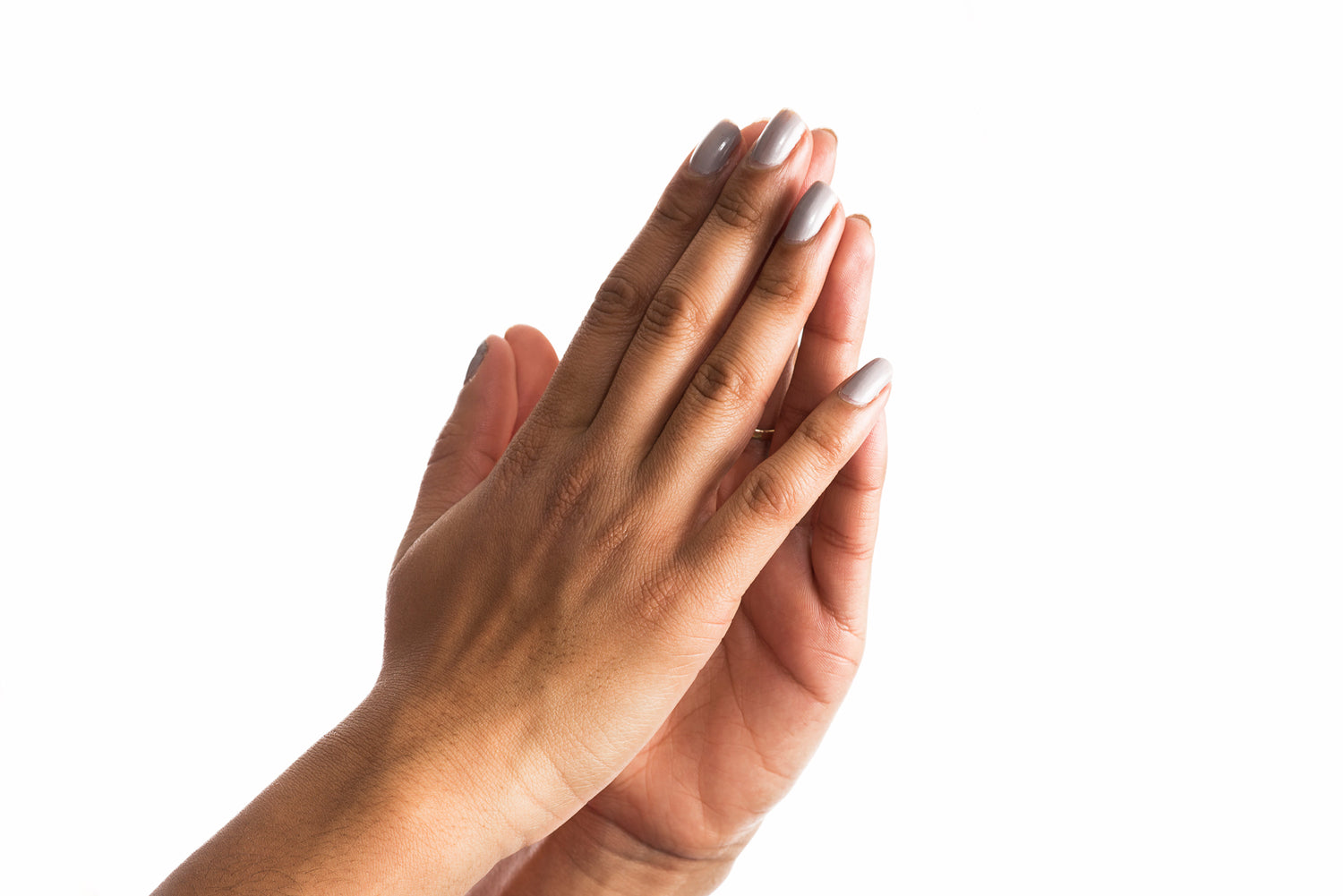
Hypochlorous Acid: Applications in Dermatology
The paper discusses the benefits and safety of using hypochlorous acid (HOCl) for dermatologic applications, particularly in inflammatory skin conditions and cosmetic procedures like permanent makeup (PMU). Key points include:
- Antimicrobial Properties: HOCl is a powerful oxidant with strong antimicrobial effects, aiding in infection prevention.
- Wound Healing: It promotes re-epithelialization during wound healing with low toxicity to skin cells such as keratinocytes and fibroblasts.
- Anti-Inflammatory Effects: HOCl modulates the NF-kβ signalling pathway and reduces inflammatory cytokines, helping manage inflammatory skin conditions like atopic dermatitis and psoriasis.
- Safety: The review highlights the low cytotoxicity of HOCl, making it a safe option for dermatologic use.
- Applications: HOCl is used in infection prevention, wound care, scar management, and treatment of inflammatory conditions such as atopic dermatitis and pruritus. Emerging research suggests potential uses in treating acne vulgaris and seborrheic dermatitis.
For more detailed insights, you can access the full study on JID.

Status Report on Topical Hypochlorous Acid: Clinical Relevance of Specific Formulations, Potential Modes of Action, and Study Outcomes
This paper highlights the benefits of hypochlorous acid (HOCl) for treating inflammatory skin conditions and its use in cosmetic procedures like permanent makeup (PMU). Key points include:
- Antimicrobial Properties: HOCl is a powerful antimicrobial agent that combats various pathogens, including bacteria and biofilms. It is produced by the immune system and can be synthesized for topical use.
- Anti-Inflammatory Effects: HOCl reduces inflammation by modulating the NF-kβ signalling pathway and downregulating inflammatory cytokines. This makes it effective for conditions like atopic dermatitis, psoriasis, and pruritus.
- Wound Healing: HOCl promotes re-epithelialization and has low cytotoxicity to skin cells such as keratinocytes and fibroblasts. It is used for wound care, diabetic ulcers, and scar management.
- Clinical Applications: HOCl is used in managing various skin disorders, including seborrheic dermatitis and acne vulgaris. It also aids in preventing infection and promoting wound healing and scar reduction.
Overall, HOCl is a versatile and effective agent for skin care, offering antimicrobial, anti-inflammatory, and wound-healing benefits. It is safe for clinical use and has multiple applications in dermatology and cosmetic procedures.
For more detailed insights, you can access the full study on NCBI.
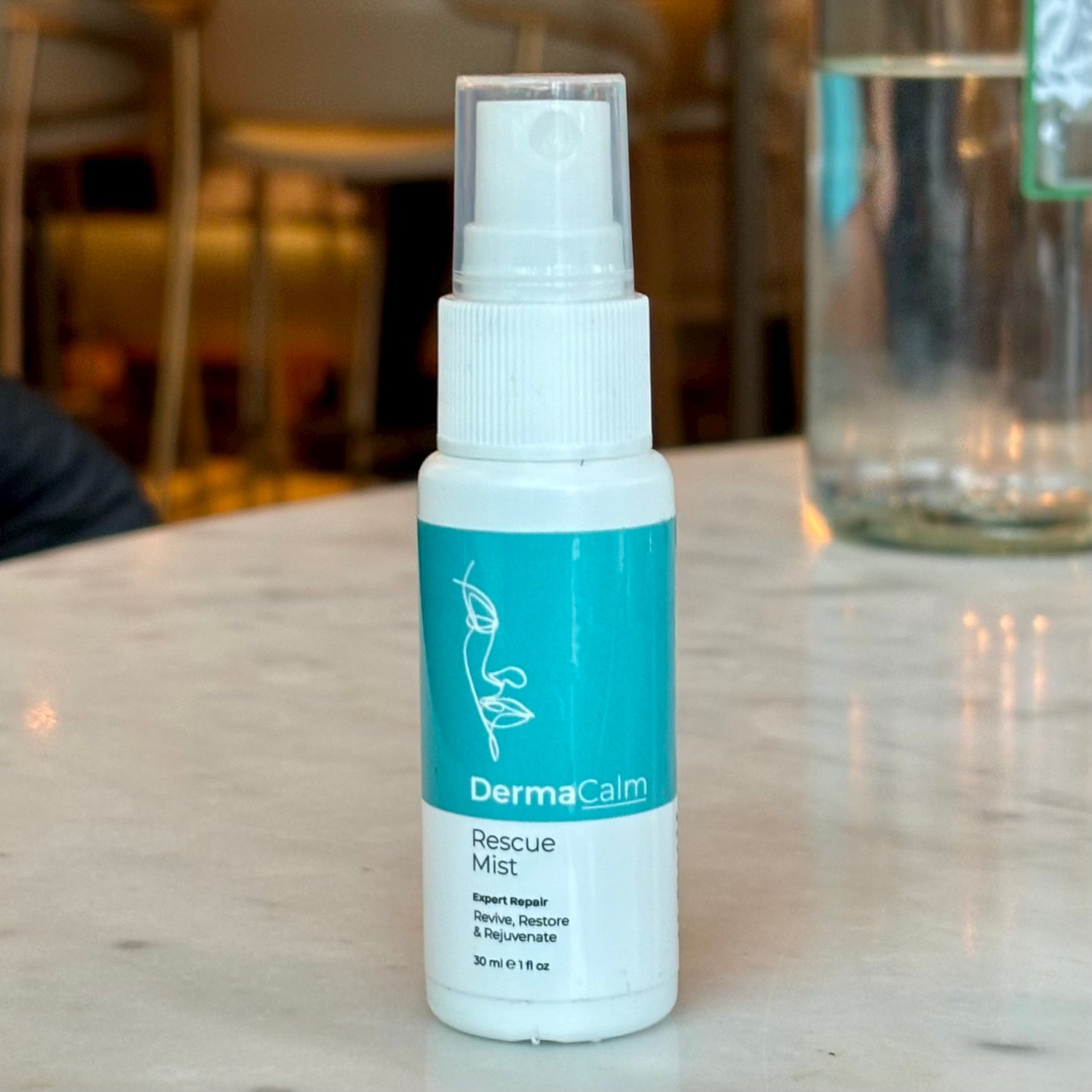
Soothes, Purifies and Repairs.
Simply spray and leave it to work.
Gently works through
light makeup, so you can still use Rescue Mist during the day to improve symptoms.
"The Rescue Mist helped bring down my symptoms but using the Mini throughout the day is what really cleared my skin!"
- Laura J.
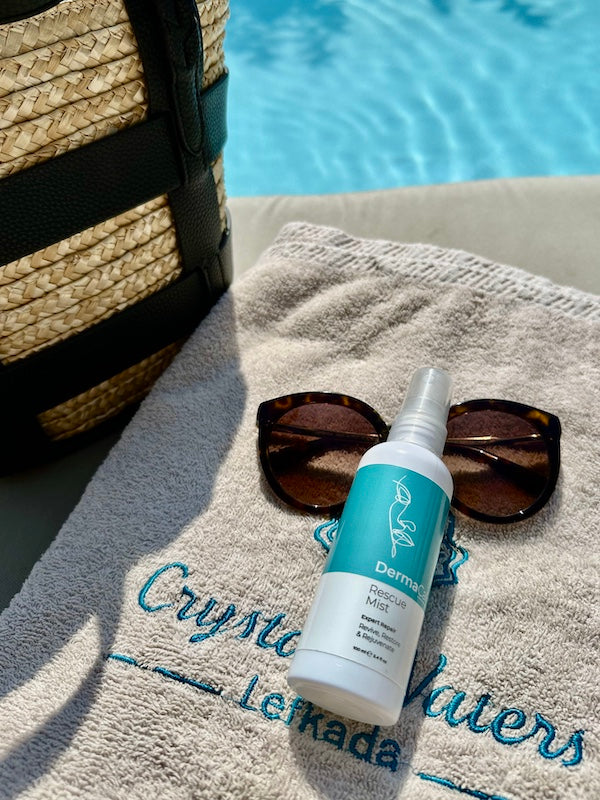
Try Rescue Mist Today
A gentle mist, easy to add to your daily skin routine.
Simply spray your skin after cleansing or on-the-go when you are out and about.
Two bottle sizes: 'Full size' for daily skin routine and 'Mini' for your handbag or pocket.
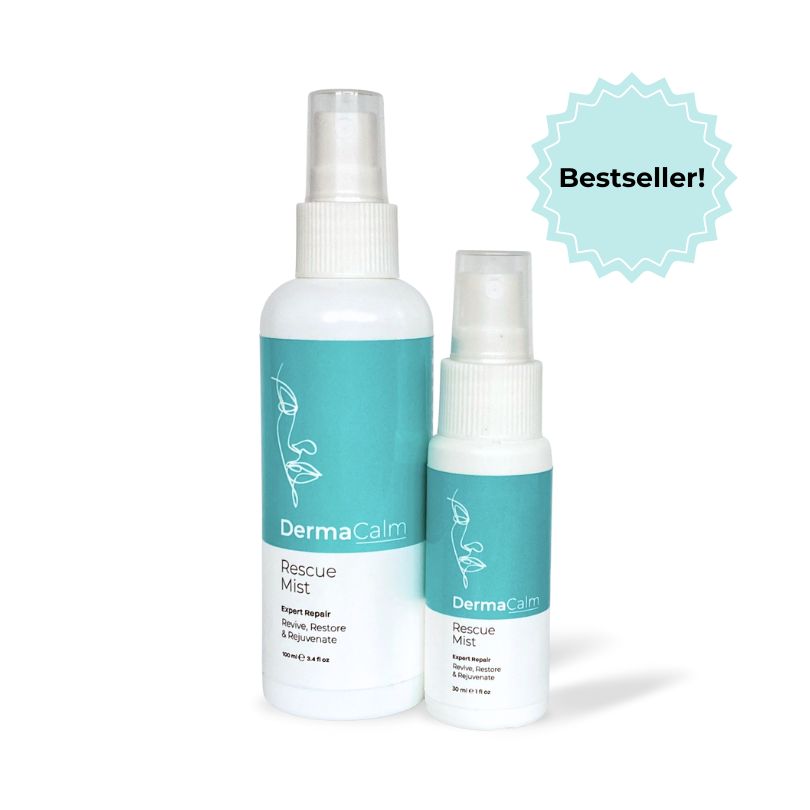
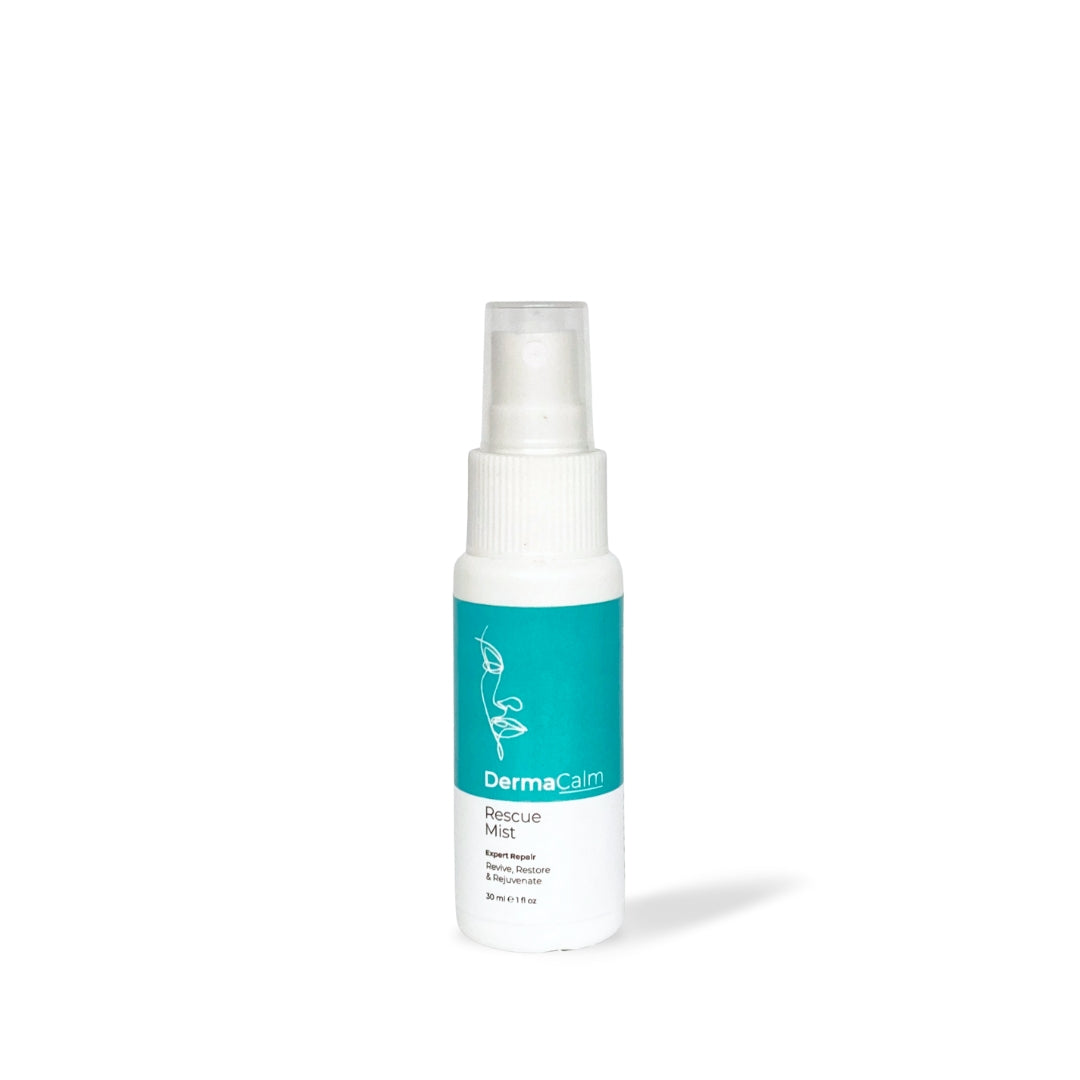
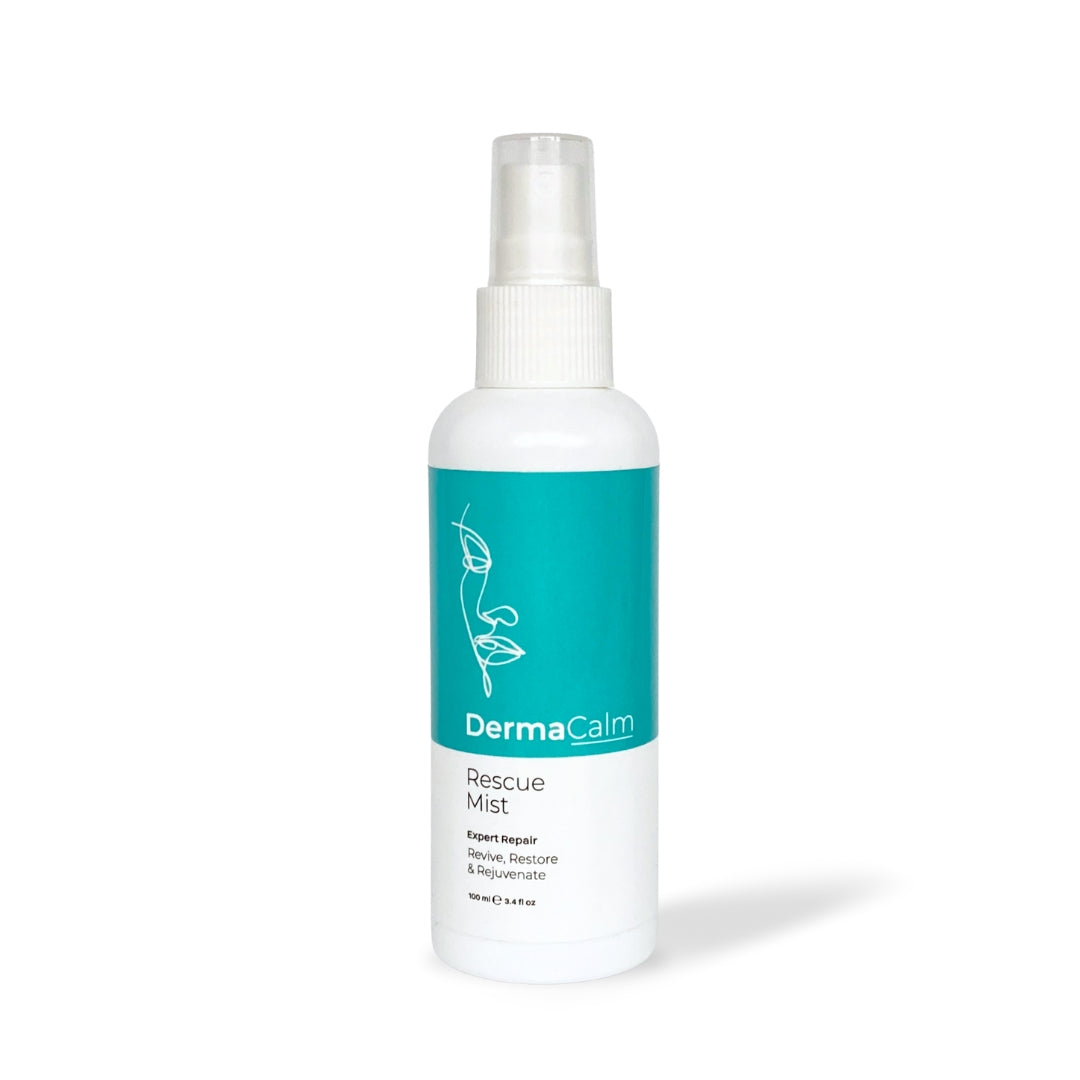
DermaCalm
The Rescue Mist Range
